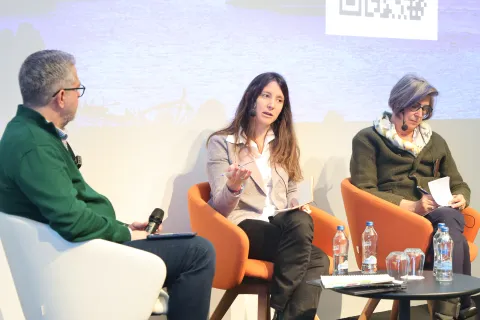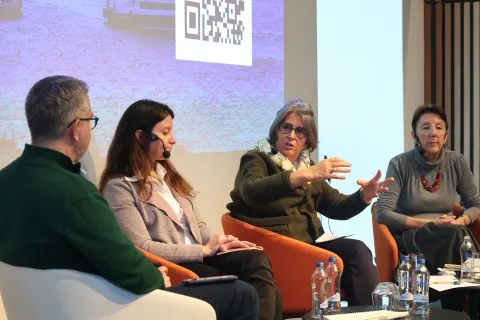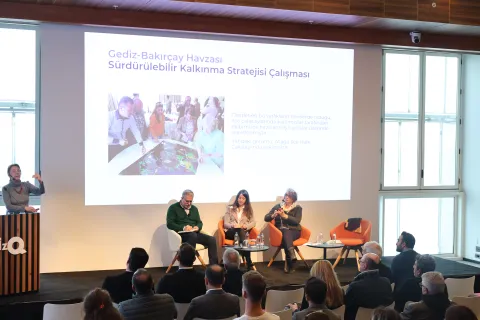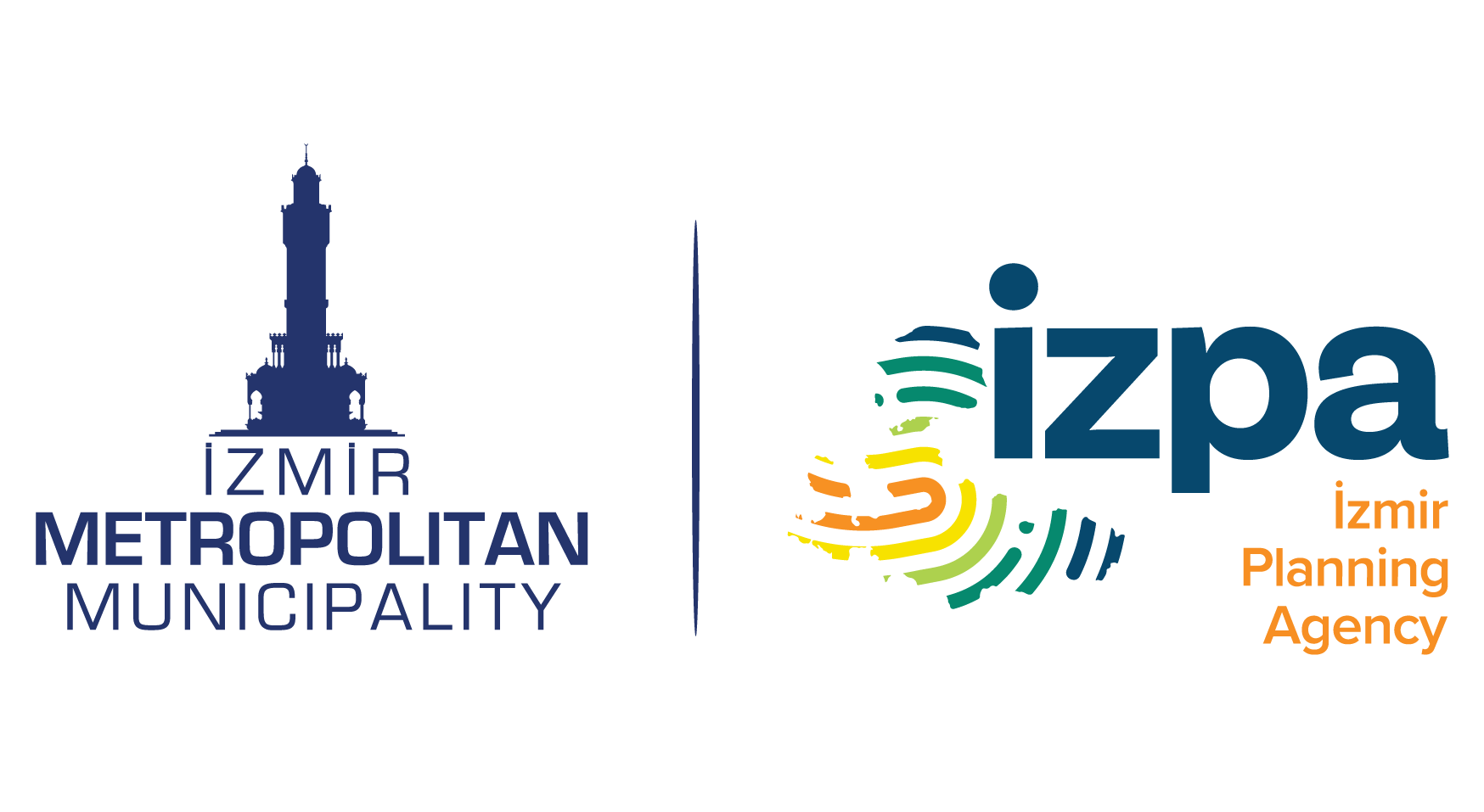The third panel in the "What Kind of Izmir" series: Gulf and Basins
- Image
The third panel of our "What Kind of Izmir" series, consisting of eight panels and eight workshops in total and moderated by Assoc. Prof. Dr. Murad Tiryakioğlu, was held on 7 December 2024 at IzQ Innovation Center under the title of Gulf and Basins.

The first speaker, Assoc. Prof. Dr. Irmak Ertör from Boğaziçi University, explored the concepts of “blue economy” and “blue growth.” She highlighted the dangers of prioritising economic growth at the expense of ecological sustainability, stating:
"Our main problems in the Gulf of Izmir include the decline in marine biodiversity, species extinction, industrial and agricultural waste, and the resulting drop in oxygen levels. Unplanned urbanisation also limits access to the sea and coastlines. Aliağa serves as a critical example of the intersection between labour and ecological issues, particularly due to the impacts of the shipbreaking industry."
“Lagoons and seagrass meadows are crucial for marine ecology”
Following Ertör, Prof. Dr. Güzel Yücel Gier from Dokuz Eylül University focused on the significance of special environmental protection areas, such as the Çakalburnu Lagoon and Ramsar sites, for flood prevention and marine ecology. She noted:
"Two-thirds of the lagoon has been drained, and road construction has blocked its connection to streams. Damaging the hatching and feeding grounds of fish in this way will lead to the end of fishing."

Prof. Gier also underscored the critical role of seagrass meadows in biodiversity, likening their importance to that of wetlands:
"Seagrass meadows face threats such as turbidity, invasive species, and deep-water discharges. Mucilage is the final manifestation of these challenges. To protect the marine ecosystem, interdisciplinary studies are essential. City planners and architects must collaborate, and architects need to understand the dynamics of the coast and sea. Recognising and mapping local ecological values is vital."
“Basin studies are of great importance”
The final speaker, Assoc. Prof. Dr. Semahat Özdemir from the Izmir Institute of Technology, addressed the climate crisis, calling it one of the most critical challenges of the coming decades. She explained:
"Extreme climate events, drought, rising temperatures, water scarcity, and food security are pressing global risks. In Turkey, we face four major problem areas: the climate crisis impacts in the Eastern Mediterranean, one of the regions most affected globally, the persistent risk of earthquakes, severe pollution in river basins, and the depletion and contamination of surface and groundwater. Agricultural lands are also polluted by chemicals and air pollution, with the resulting products posing health risks."
Assoc. Prof. Dr. Özdemir emphasised the need for strategic and action plans for basin management, stating:
"It is crucial to conduct studies on basins, recognising their ecosystem integrity, to create strategic and action plans, identify priorities, define the key actors and methods for implementation, and monitor progress effectively."
The panel concluded with a question and answer session after the speeches.

